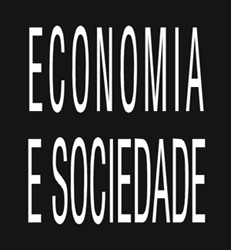Abstract
This article offers an analysis of the qualitative transformations in East Asian welfare states since the 2000s. First, I distinguish institutional legacies in light of typologies drawn in the literature: “developmental-inclusive” (Japan and South Korea)”; “individualists” (China, Hong Kong, Malaysia, and Singapore), and “incipient” (Philippines, Indonesia, Thailand, and Vietnam). I argue that the first group has deepened the process of expanding its social policies under a universalist approach, but has redesigned the linkage between industrial policy and social policy, as well as it has fostered defamiliazation policies. China moves away from the “individualist” group towards a “hybrid” type, by greatly expanding public provision, albeit through a dual and stratified system. Finally, the “individualists” and the “incipient” expanding the role of the state on social risks through policies focused on low-income families.
Keywords
Welfare State; Developmental Welfare State; East Asia; Social policies; Social protection

 Thumbnail
Thumbnail
 Thumbnail
Thumbnail
 Thumbnail
Thumbnail
 Thumbnail
Thumbnail
 Fonte: Elaboração própria a partir de SPEED (todos os gastos sociais até 2017), Banco de Desenvolvimento Asiático (gastos sociais a partir de 2017), IMFdata (China), OECDstat (Japão e Coreia do Sul) e Banco Mundial (taxa de crescimento).
Fonte: Elaboração própria a partir de SPEED (todos os gastos sociais até 2017), Banco de Desenvolvimento Asiático (gastos sociais a partir de 2017), IMFdata (China), OECDstat (Japão e Coreia do Sul) e Banco Mundial (taxa de crescimento).
 Nota: a ano mais recente disponível e comum a todas as rubricas de gasto social.Fonte: Elaboração própria a partir de BDA e SPEED (maioria dos países asiáticos), OECDstat e Banco Mundial (Japão, Coreia do Sul e Vietnã) e IMFdata (China).
Nota: a ano mais recente disponível e comum a todas as rubricas de gasto social.Fonte: Elaboração própria a partir de BDA e SPEED (maioria dos países asiáticos), OECDstat e Banco Mundial (Japão, Coreia do Sul e Vietnã) e IMFdata (China).
 Fonte: Elaboração própria a partir de Banco Mundial e BDA (Hong Kong).
Fonte: Elaboração própria a partir de Banco Mundial e BDA (Hong Kong).
 Nota: Gasto em proporção com o PIB para Malásia e Vietnã disponível até 2017.Fonte: Elaboração própria a partir de BDA, SPEED, IMFdata (China) e OECDstat (Japão e Coreia do Sul)
Nota: Gasto em proporção com o PIB para Malásia e Vietnã disponível até 2017.Fonte: Elaboração própria a partir de BDA, SPEED, IMFdata (China) e OECDstat (Japão e Coreia do Sul)